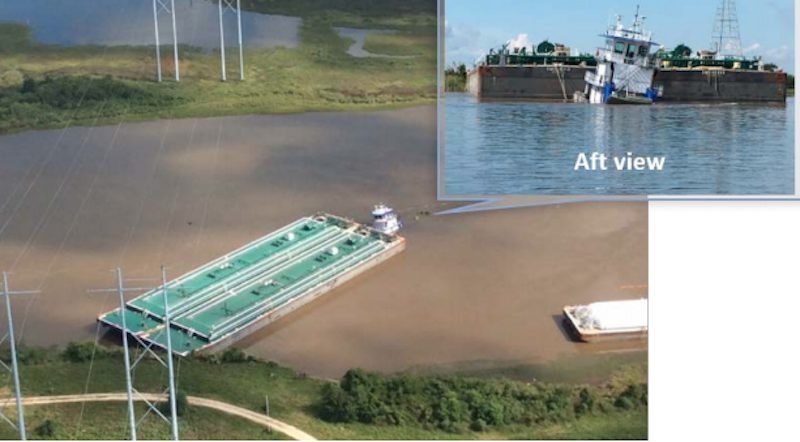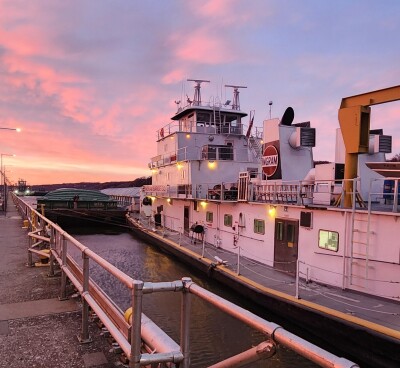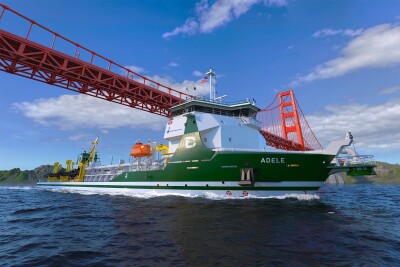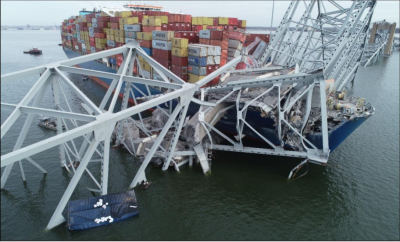The National Transportation Safety Board (NTSB) has issued a marine accident brief on the flooding and sinking of an 1,880-hp towboat in 2017 while maneuvering two empty tank barges with the assistance of another vessel in the Gulf Intracoastal Waterway near Sulphur, La.
While the tow’s starboard side was almost perpendicular to the current, the towboat Savage Ingenuity heeled to starboard and flooded through an open engine room door, the NTSB report said. The towboat sank partially, its bow being held above the water by the head line connected to the barges. All five crewmembers escaped to the barges without reported injury. Approximately 11,800 gals. of diesel oil were released into the GIWW, most of which was not recovered. Damage to the 68'x28' Savage Ingenuity was estimated at $1.35 million.

Savage Ingenuity underway. Photo courtesy of Savage Inland Marine
The partially sunken Savage Ingenuity and the two empty tank barges partly obstructed the waterway as response and salvage efforts commenced. According to the organization responding to the oil spill, initial efforts to deploy a containment boom around the vessel were not possible because of the strong easterly current, estimated to be about 6 knots. The Coast Guard had to manage traffic through the area until cleanup and salvage efforts were completed.
The NTSB determined that the probable cause of the flooding and sinking of the Savage Ingenuity was the absence of company procedures requiring the closure of weather deck doors at all times while the vessel was underway. This resulted in rapid down flooding into the engine room when the vessel heeled while perpendicular to a strong current with the head of its tow pushed into a river bank.
The towboat was built in 2012 at Rodriguez Shipbuilding Inc., Coden, Ala, as the Cheryl M. Settoon. Five years later, the vessel was purchased by Savage Inland Marine and renamed the Savage Ingenuity.





